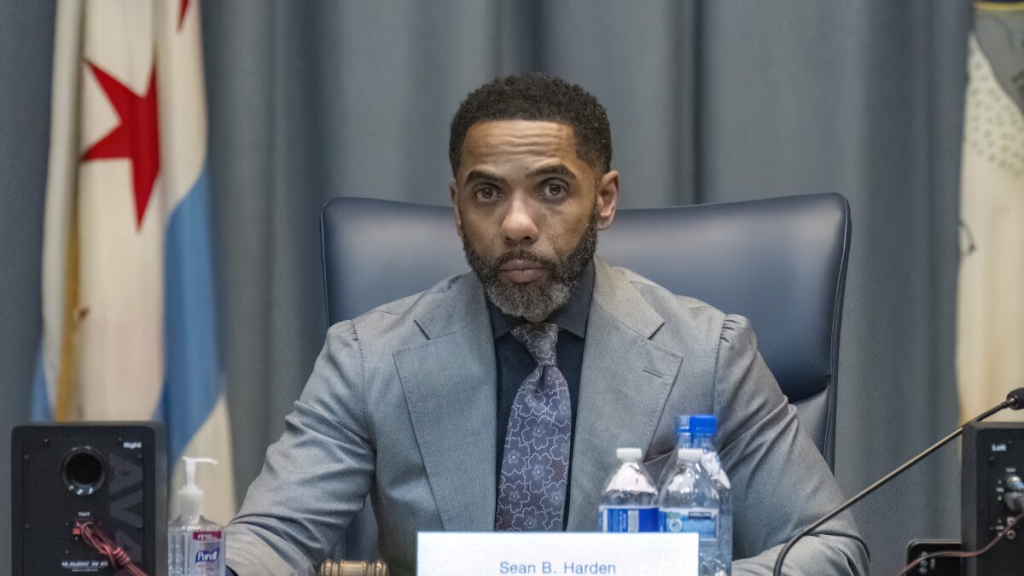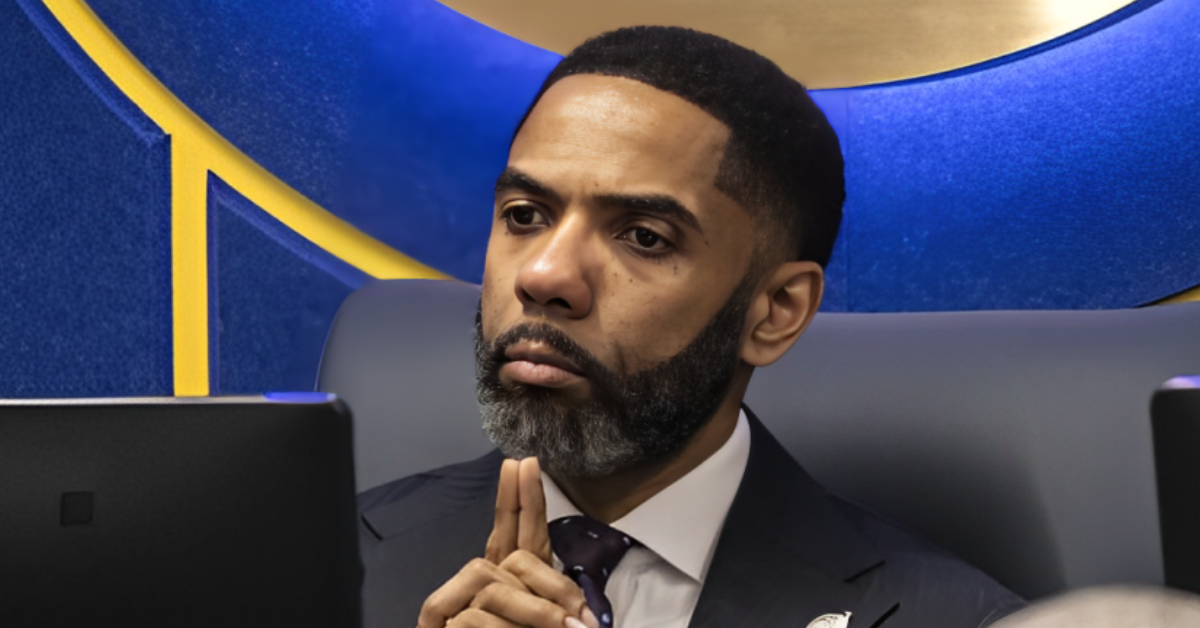Sean Harden, the newly appointed president of the Chicago Board of Education, is stepping into a leadership role at a challenging time for Chicago Public Schools (CPS). With a looming budget deficit, a threat of a teacher strike, and a leadership vacuum left by the departure of CPS CEO Pedro Martinez, Harden has his work cut out for him. Despite the pressure, Harden, 51, is determined to make a difference for the city he loves.
Harden’s decision to take on this demanding volunteer position raises a few eyebrows, especially considering his career has largely kept him out of the public spotlight. A real estate developer and nonprofit board chairman, Harden was not a natural choice for a high-profile role in education. However, Harden says that his desire to serve the city he calls home led him to take the plunge into what he calls the “lion’s den.”
“I’ve always said to mayors, if there’s a way that I could be helpful, let me know,” Harden told WBEZ. “I really mean it because I love this city.”
His appointment as president of the board came at a time when CPS is facing some of the most significant challenges in its history. In addition to the budget issues, the Chicago Teachers Union (CTU) is threatening a strike over contract negotiations. The outgoing CEO, Martinez, found himself at odds with the mayor’s office and the board over how to deal with the district’s financial struggles and the union’s demands, leading to his departure.

Moreover, Harden now leads a newly expanded board with 21 members, 10 of whom are elected, marking the first time that elected members have had a significant presence on the board. This new structure has created additional friction, as not all members are on the same page when it comes to key issues like the teacher’s contract and the budget.
Harden is not intimidated by the complexity of the role. Raised on the South Side of Chicago, Harden attended Marcus Garvey Elementary and Whitney Young Magnet High School. From there, he went on to Morehouse College in Atlanta, where he majored in international business and even took two years of Japanese. But after his sophomore year, his life took a turn when his mother became seriously ill, and he returned home to Chicago.
Back in Chicago, Harden started working with youth who were disconnected from both school and the workforce. He worked at a job training program that helped young people develop career skills. G. Sequane Lawrence, who has worked in economic development for many years, was involved in overseeing the program and remembers Harden’s dedication. “He went way beyond making sure these young guys were ready for work,” Lawrence recalls. “He was cutting their hair, making sure they had something to wear. He really cared.”
This experience in youth development led to a career in city government, where Harden worked from 2002 to 2009, focusing on workforce development. His final role in the Daley administration was as the deputy CEO for community affairs at CPS, where he gained insight into the inner workings of the district.
Despite advancing in his career, Harden always felt the weight of not having a college degree. “It really provided the basis for where I am today because I had to show up early and stay late and develop a real strong work ethic,” he said. “I had to outwork everybody because I didn’t have a degree.”
After leaving CPS, Harden moved into real estate and consulting, focusing on economic development and strategic planning for small businesses and nonprofits. Over the years, he has served as a board member and chairman for several nonprofit organizations, including one that provides healthcare to underserved communities and another that helps the homeless. He is also involved with the Revolution Institute, an organization dedicated to closing the racial wealth gap by helping workers take control of energy and manufacturing companies.
Harden’s broad experience in both business and nonprofit sectors makes him well-equipped for his new role. Lawrence believes his ability to connect with a diverse range of people—business leaders, politicians, and everyday citizens—gives him a unique advantage. “He can negotiate many spaces,” Lawrence says. “He’s also someone who will give feedback, whether you want it or not.”
But Harden is already facing tough challenges as he takes the helm. His first major act as board president was overseeing the firing of CPS CEO Pedro Martinez. The decision came after a lengthy power struggle, with Martinez refusing to accept the district’s budget constraints while facing pressure from both the mayor’s office and the CTU.
Harden has made it clear that the board expects senior leadership to come up with viable solutions, rather than simply saying no to proposals. He stressed that the board might need to conduct its own research to figure out a way to resolve the impasse between the union and the district.
“We’ve been able to take all of this information thoughtfully, analyze it, and come up with the pathway forward,” Harden said.
Harden has also faced criticism in the early days of his appointment. News surfaced that he had requested a CPS driver and car, a service that would cost the district an estimated $150,000. While past board presidents have had access to similar services, the request drew attention during a time when the district is facing major financial strain.
Harden defended the request, emphasizing that being board president is a volunteer position, and having a car and driver would allow him to be more accessible to schools and the community. “I see it less as privilege and more as tools,” he explained. “It’s about being accessible and present.”
Despite the scrutiny, Harden remains focused on his mission to improve CPS. He acknowledges the criticism but insists that strong leadership is essential for overcoming the current challenges. “My belief is, with strong leadership, people will gravitate towards the direction that gets us to where we need to go,” he said.
With a clear vision for Chicago’s future, Sean Harden is ready to tackle the tough issues facing CPS, from budget deficits to teacher negotiations, all while working to strengthen the city’s public education system.
Disclaimer: This article has been meticulously fact-checked by our team to ensure accuracy and uphold transparency. We strive to deliver trustworthy and dependable content to our readers.

